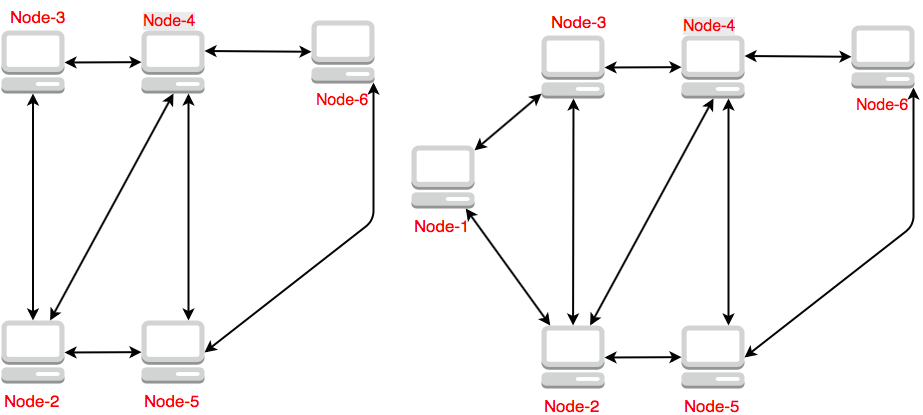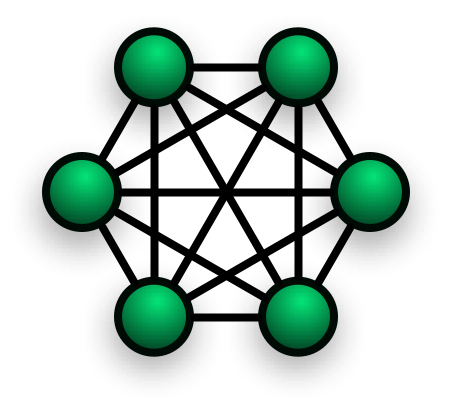I want to give example from private Ethereum network which has 5 nodes, but we can generalize it for much larger network that has thousands of nodes. On the figure double arrows represents connected peers, which they add themselves using addPeer(). Later, Node_1 adds Node_-2 and Node-3 as peers using addPeer() since it only knows enode://pubkey@ip:port of {Node-2 and Node-3} and connects to the network.
[Q1] After that, does Node_1 automatically fetches Node-2 and Node-3's connected nodes's enode://pubkey@ip:port, which are {Node-4 and Node-5} and dynamically connects to them? and afterwards also fetches Node-4 and Node-5's connected nodes's enode://pubkey@ip:port which is Node-6 and connects into that. This operation could be done recursively. If no, does Node-1 statically remains as only connected to Node-2 and Node-3.
[Q2] This one is connected to first question. If Node-1 cannot fetch the Node-2 and Node-3's connected nodes's enode://pubkey@ip:port and only remain connected to Node-2 and Node-3, after few hours Node-2 and Node-3 shuts down. Does it leads Node-1 disconnects from the network as well?


